Central MA Up + Comer: Compex Software Founder Jonathan Vo
Thursday, April 03, 2014

Jonathan Vo went from being a Vietnam boat refugee to owning the successful Compex software company.
A conversation with Jonathan Vo
SW: What made you decide to open your own company?
JV: Compex Software came about as result of a project that I’d worked on while I was a student at WPI and worked part-time for a local manufacturing company located in the now Biotech Gateway Park in Worcester. I was given the assignment to automate and integrate many of the manual production processes within the shop into a single comprehensive database system. At first, it was just part of my job, which I enjoyed doing very much. Once the software package was completed and had a proven successful record, my employer actually recommended the solution to another closely related but independent company managed by a family member.
With their encouragement and financial assistance, they urged me to go on my own and start a business to sell this software solution to other companies in this specialized industry. It was a reasonable arrangement for everyone at time because I was still a part-time student intern and they did not have a budget for full-time in-house IT/Software developer. They introduced me to other business members of the industry association and the company grew through word-of-mouth. The company was incorporated in 1994 with the help of co-founder Mike Roberts, who also worked for one of the manufacturing companies that helped develop and invest in the first version of our software product.
SW: What exactly does Compex do?
JV: At Compex Software, we design, develop and implement integrated business management software solutions to help small- and medium- sized businesses manage their operations. This includes manufacturing processes, inventory tracking, job costing, quality control, and accounting functions. We go beyond the typical generic over-the-counter solutions such as Quickbooks, Quicken, Peachtree, etc. by working very closely our clients to develop niched vertical applications to help them meet some of the industries strict quality standards such as ISO, NADCAP, and Military Specifications.
SW: What led you to this career path?
JV: Ever since I was a kid I have been fascinated by science and technology, especially when it comes to using machines or tools to make our lives easier. I do recall from my early childhood that life in the old country (Vietnam) was not so easy; most tasks were done with manual labor. Lack of resources from basic things like electricity, fuel for cooking, running machines, to access to books often kept me daydreaming about a better way of doing things or just a better place to be.
In my early years in the United States, I spent a lot of time at the Worcester Public Library. First, because I didn’t have many other places to go to and second, I had access to so much collective knowledge for free. Some of the books I had my hands on were on the subject of electronics and computers. The thought of being able to tell a machine what to do and it performing fast, repeatedly without complaining, and without failing, was so intriguing that it kept me wanting to learn more.
My first simple program was written for a low-end Casio programmable calculator (I couldn’t afford an HP programmable calculator at the time) to solve quadratic equations. I eventually saved enough money to purchase a fully functional computer with built-in BASIC language interpreter that came with a (whopping) 2K of RAM, and a keyboard, and it could be connected to a black and white TV.
I invested over $200 into that Timex Sinclair 2000 computer, which at the time was a fortune for me. I started to write many BASIC programs on that computer, which I was able to save and retrieve on a regular audiocassette tape. My first real job was a computer operator at Burroughs Corp. (now Unisys) as a student intern during my senior year in high school. With a real paying job, earning $10 an hour back in the early 90s when the minimum wage at the time was around $3.50, I could afford to buy better computers and developed more complicated software over time. But my passion for using technology to solve bigger and more challenging problems really has not changed much over the years.
SW: What is on the drawing board for 2014?
JV: For organizations of any size, one of the challenges has always been the ability to collect pertinent and timely data from many sources and deliver it to the people in management/everyone on the team wherever and whenever appropriate, so that they can make better business decisions. This challenge is even more acute in today’s hyper-global competitive environment, especially for the manufacturers in the US. Up and down the supply chain, everybody is pushing for high quality, just-in-time production, and fast-turn-around delivery of products while maintaining low costs.
We are trying to alleviating some of the problems by developing software applications that could be deployed on any device, leveraging our client’s existing IT infrastructure from servers, desktops, tablets, smartphones, to embedded devices. The idea is to extend our client’s capability to capture and share data from anywhere in near to real-time without the unnecessary costs and extra burden on the end-users. At the same time, we are addressing a monumental internal challenge of being able to deploy and to support multiple platforms in an ever-fast changing technology environment. It is the Holy Grail of the software development community, being able to write once and deploy anywhere. We are getting closer.
SW: You have gone from a Vietnam boat refugee who came to the United States by yourself at 12 to the founder of a software company. Can you share your story?
JV: It was after the fall of Saigon, when South Vietnam was taken completely by the communist North Vietnam that marked the beginning of my journey to America. Promptly after the war ended and for many more years to come, nearly everyone who had ties with the previous government was forced to indoctrinate to a new way of life, whether in prison, re-education camps, or in new economic zones (a creative way to use people to clear unexploded ordinance left behind from the war). The new government was determined to eradicate the old system and replace with a new one. Both of my parents were educators and had positions in the US-backed South Vietnamese government. As such, we were classified as people that needed re-education.
Needless to say, life was not easy for all of us. We endured many years of economic and social hardship. Food and other basic necessities were rationed. Education and job opportunities were limited, as only people with connections to the communist party had better options. Many people that were in similar positions risked everything—including their lives—to escape the hardship and injustice in order to seek a better life anywhere that would accept them. Most escaped by boat, and the exodus started immediately after April 30th 1975 and lasted for nearly two decades.
My parents, who wisely recognized that there was no future for any of us, took a chance and planned for my escape. I was chosen due to being the oldest boy in the family because the risks were just too great for the entire family to leave all at once. We knew first-hand of many families and friends who attempted and were never heard from again. I was 12 years old and had just finished eighth grade. I vaguely knew what was going on.
It was at the start of the summer vacation, June 1981, a perfect time for my escape as other people whom my parents knew were also secretly planning to leave. The ruse that they used with the local authorities who closely monitored the movement of all citizens, was that I was to travel and stay with my grandparents at a farm and to return at the beginning of the new school year.
I could remember vividly waving goodbye to my parents in a dark alley in the middle of the night, in a strange place I have never been, surrounded by people all seeming to be in a hurry to go somewhere. Looking back I could faintly see both of them crying, silently in the shadows. I didn’t know exactly why at the time, as I was told they’d be seeing me again by the end of the summer.
Things happened really fast. By daylight I was in the middle of the ocean surrounded by water as far as the eye could see. I had never been anywhere near a beach up until that point in my life. We were on this tiny fishing boat over packed with people from bow to stern. For days, the boat appeared to be heading nowhere—the same scene repeated day after day and night after night. Except for one occasion, we were stopped by a bigger and faster boat with many guns. They took most of the little possessions that the people brought with them, but we were lucky that they did not take more. We were left to go on our way. We saw other ships in the distance occasionally, but none would stop.
Our luck changed on the fifth day, when from out of nowhere in a distance horizon came a pair of wings; it felt as though heaven sent angels from above. It was a Navy patrol plane that spotted us and dropped a smoke signal near our boat. Within an hour or so, an enormous Brazilian oil tanker came by and rescued all of us. I was told later that a huge storm came up shortly after the pickup, and only at the request of the US Navy in coordination with the world refugees’ agencies would a commercial vessel stop to pick up a boatload of people at sea and drop them off at refugee camps scattered throughout the region.
I was lucky enough to have spent only five months in a Singapore refugee camp because of my minor status before being sponsored by the Catholic Charities and immigrated to United States. It was during my time in the refugee camp that I came to a realization that I’d been sent on a journey with no chance of returning, and never to see my family again.
My new life began in the US on a cold November day around Thanksgiving 1981. In retrospect, I feel so lucky to be alive every single day of my life, as so many other unfortunate souls try to search for freedom and a better life but never make it.
SW: Who or what is the biggest influence in your life?
JV: In terms of work ethic and the motivation to improve my own life, both of my parents and my paternal grandfather (my other grandparents passed away long before I got to know them) are my biggest sources of inspiration. They came from a very humble background. My grandfather was a poor peasant that performed menial labor job for other landowners as a young man but managed to own his own farm when he passed away. Both of my parents managed to obtain education beyond high school, at a time when none of their siblings had the opportunity to even get an elementary education.
My source of inspiration for servicing and helping other people at a high level comes from the people that I learned about through reading and studying, such as the founders of this country and leaders like President Lincoln and Dr. Martin Luther King. But at a personal level, it comes from the opportunity to interact with and witness so many kind-hearted and courageous everyday ordinary people who perform extraordinary tasks beyond the call of duty, helping others without any hesitation.
SW: What do you do with your free time?
JV: I am very fortunate to have started my own business and am able to manage it on a daily basis, which takes up quite of bit my time. But I am also very mindful of balancing between business and family time. We have three young children and they too need attention and guidance. Helping my wife with the children and family business matters take up another good chunk of my time. What’s left I like to spend reading, researching for new ideas, playing and experimenting with a few projects in the garage like robotics, home automation, and sensors, etc. As a family, we do take some time off from work—mostly coinciding with the kids’ vacation and major holidays—to travel, visiting local beaches in the summertime and enjoying the company of friends and family.
SW: Are you involved with community service?
JV: I am member of the Worcester Rotary Club. With their motto of “Service above Self”, members of the Rotary Club initiate many projects and contribute so many resources to promote and improve communities both locally and around the world. Some of the local projects that I have participated in the past include serving Salvation Army Sunday dinners, fund raising events to help with the water projects in Haiti and the aftermath of the recent devastating earthquake.
Beyond Rotary, my youngest son Timothy, is currently a member of the Boy Scouts, so I devote some of my time to help out the local troops. I try to help out by driving the kids to some of the outing trips and to various bottles and cans fundraising events. I am also helping out with their computer and programming merit badges.
SW: What is a fact that few people know about you?
JV: Few people know that I’d run away from my foster/sponsored home when I was in high school. Not even my own parents knew. Only my closest friend at the time John Lombardi knew, as he and his family took me in for a while. Once I graduated from high school, I lived on the college campus for a year and eventually moved out to share an apartment with other friends.
I was also homeless at the same time that I owned my own rental apartment building. How was that possible? I was living on the first floor in a three-decker that I owned in the city. In trying to save some money and hoping to get more rental income, I decided to move up to the third floor and rent out the first. But things didn’t work out as planned, the first floor tenants moved in sooner than expected and the third floor tenants wanted to live there rent-free for a little while longer. I was homeless and had to live in the basement of the office building where I was renting my office space from for a few months, until the eviction process completed its course.
However, despite all the ups and downs and the many obstacles that came into my life, things have always worked out for the better. I attribute that to the invaluable help from the people whom I have come in contact with and from many more people that I have never met in person.
SW: Where do you see yourself in 10 years?
JV: If God’s willing, I would like to be in the position to help people who are not as fortunate as I am by offering opportunities for them to explore their fullest potential by pursuing their education, employment and/or business ventures. What I mean by that is through my work and our collective effort in the business, we will be able to offer financial assistance to those with limited means but with a strong desire for quality education, creating more career opportunities for those who want to join our team and assisting entrepreneurs by investing in their innovative startup business ventures.
Central MA Up + Comer is a weekly profile of a member of the next generation as they are making their mark on the Central MA workforce and community. Join us every Thursday for a look at the careers and lifestyles of the local digital generation. If you have suggestions for a profile, email [email protected].
Susan D. Wagner is president of Susan Wagner PR, a boutique public relations firm invested in meeting client's goals with integrity and creativity.
Related Slideshow: 14 To Watch in Central Mass in 2014
Related Articles
- Central MA Up + Comer: Consigli Construction Co.‘s Sarah Irving
- Central MA Up + Comer: Health Coach Connie Kanella Aramento
- Central MA Up + Comer: Sales & Marketing Specialist Stephanie Ramey
- Central MA Up + Comer: Crompton Collective Owner Amy Lynn Chase
- Central MA Up + Comer: Insurance Professional Rebecca Joseph
- Central MA Up + Comer: The Queen’s Cups’ Renee King
- Central MA Up + Comer: Dancer + Designer Kayleigh Lucci
- Central MA Up + Comer: Lilac Hedge Farm Co-owner Ryan MacKay
- Central MA Up + Comer: Two Chefs’ Cassandra Clough & Rafael Guzman
- Central MA Up + Comer: Entrepreneur Ivania Nicole
- Central MA Up + Comer: NKD Worcester’s Kristie Lee Laskes
- Central MA Up + Comer: United Way’s Heidi Charlebois
- Central MA Up + Comer: Estate Attorney Alicia O’Connell
- Central MA Up + Comer: Olga Kwasniewski, Restaurant Owner + Model
- Central MA Up + Comer: Unum Underwriting Consultant Lori Crowley
- Central MA Up + Comer Niki Luparelli, Marilyn Monroe to Boozy News
- Central MA Up + Comer: Financial Advisor Wendy Davidson
- Central MA Up + Comer: Paint NIte’s April Kennedy
- Central MA Up + Comer: Yoga Instructor Claire Koepke
- Central MA Up + Comer, Sr. Account Exec + Marathoner Nicole Solera
- Central MA Up + Comer: GH2 Fitness Owner and Trainer Heather Baker
- Central MA Up + Comer: Photographer Stefany Flynn
- Central MA Up + Comer: Coco’s Closet Founder Jonelle Garofoli
- Central MA Up + Comer: Health Coach Andrea Davis
- Central MA Up + Comer: Rushmie Nofsinger

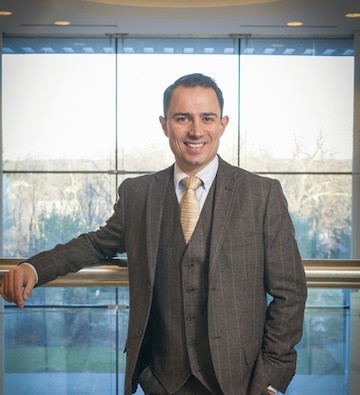


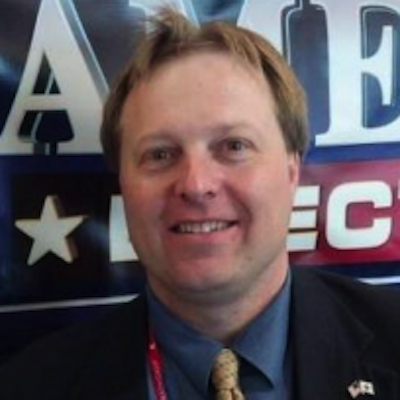
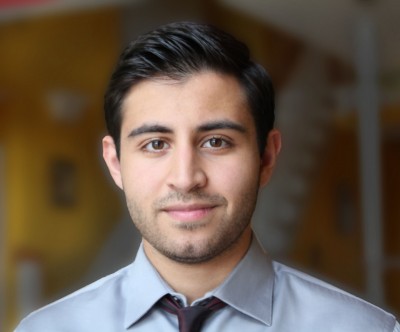

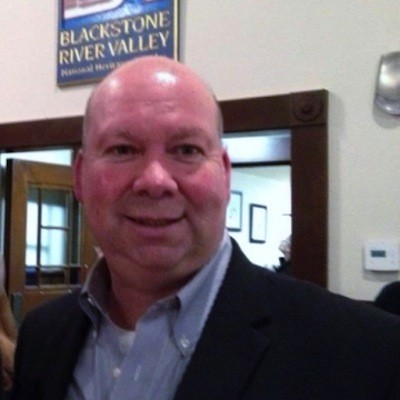

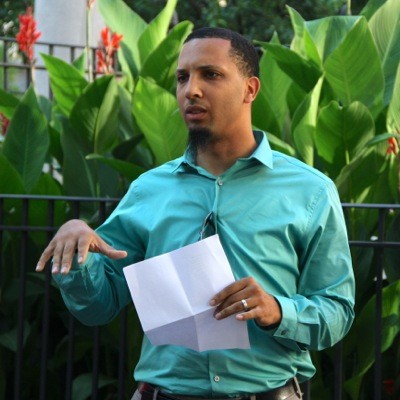
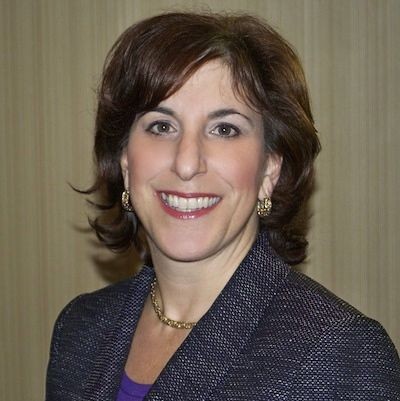

















 Delivered Free Every
Delivered Free Every
Follow us on Pinterest Google + Facebook Twitter See It Read It